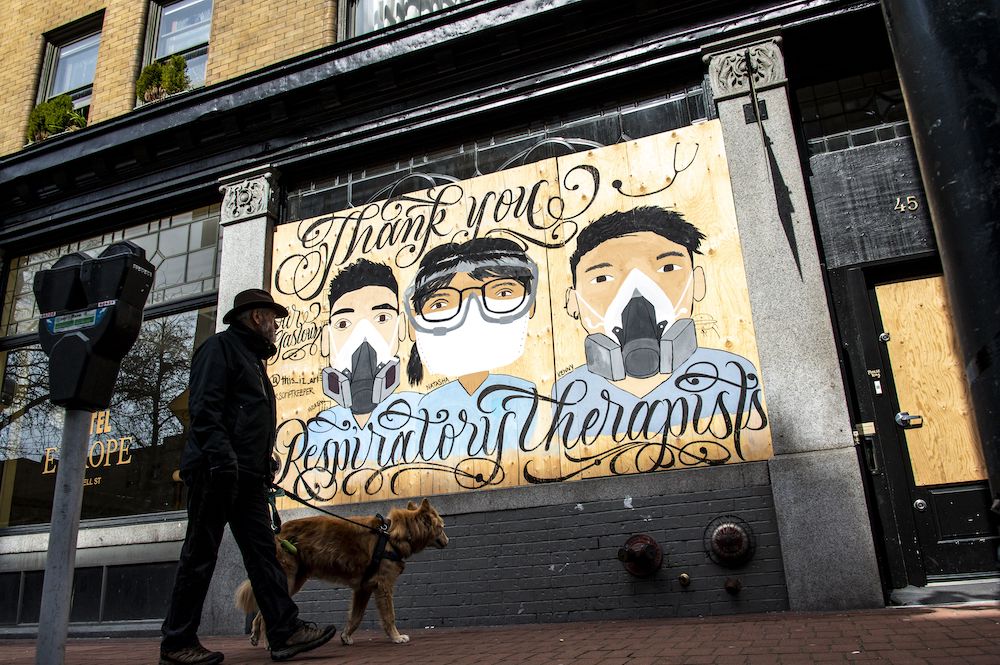More community drop-in spaces, places to make and see art or learn something new, could be coming to Vancouver’s Downtown Eastside if council approves a proposal to loosen zoning restrictions on storefronts in the neighbourhoods.
Current city rules require storefront spaces be used for retail, health care or law office use.
But many storefronts on East Hastings and other streets are sitting empty, even as homelessness has grown and many non-profits have had to limit the number of people allowed inside because of COVID-19 precautions.
In May, the Army and Navy department store announced it would be closing after decades of operating in the neighbourhood. Owner Jacqui Cohen said the decision to close came after “insurmountable” losses caused by COVID-19.
Tom Wanklin, a city planner who focuses on the Downtown Eastside, said there’s an opportunity to make better use of the closed storefronts.
“What we are going to be doing is asking council to see if they would be willing to put it out to a public hearing to allow community-serving uses, including social uses, educational uses, local employment creation,” he said. Arts and cultural space is another potential use.
“We’re working... to be able to know how many affordable spaces might be available, what is lying vacant, and talking to interested landlords as to freeing up some of those spaces,” Wanklin said.
The request from the city planners is on the agenda for today’s council meeting. If council approves the idea, it will go to public hearing sometime in January, a process that lets people sign up to speak to city council about whether they support or oppose the proposal.
The zoning changes are proposed for East Hastings between Carrall Street and Heatley Street; for Main Street between East Hastings and Alexander Street; and Powell Street between Main Street and Jackson Avenue.
Organizations like the Downtown Eastside Women’s Centre have been calling on the city to fast-track safe outdoor spaces, like patios, to help residents continue to access services in a physically distant way.
Wanklin said city staff are now close to approving a patio space for the women’s centre, but many other organizations in the neighbourhood have the same need for more space.
“With trying to create distancing, non-profits need more space in order to do that and bring people in,” said Mary Clare Zak, a social planner who has been working with Wanklin on the idea. They probably need twice as much space to do the same programming, she said.
While some neighbourhood advocates have questioned whether the Army and Navy storefront could be put to some other use, Zak said city staff have not had any recent talks with Cohen.
Zoning for most of Vancouver’s main shopping areas is designed to encourage streets full of retail shops open to the public. But COVID-19 has shown there needs to be more flexibility in how storefronts are used, city planners say.
Zak said changes to storefront zoning in the Downtown Eastside could be a model for other areas of the city.
“Non-profits, it doesn’t matter where you are, they’re all struggling with space capacity right now,” Zak said. ![]()
Read more: Coronavirus, Housing
















Tyee Commenting Guidelines
Comments that violate guidelines risk being deleted, and violations may result in a temporary or permanent user ban. Maintain the spirit of good conversation to stay in the discussion.
*Please note The Tyee is not a forum for spreading misinformation about COVID-19, denying its existence or minimizing its risk to public health.
Do:
Do not: